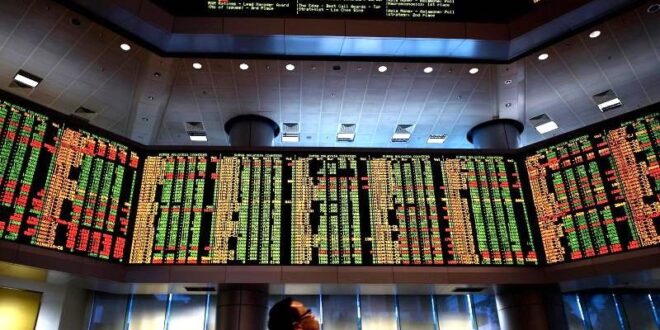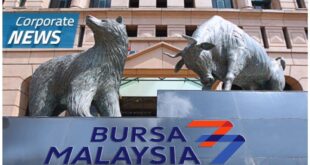PETALING JAYA: Both internal and external fundamentals remain in place to support the local equity market to push higher in 2024 as monetary policy starts to normalises across developed economies.
In a big trading week, the Federal Reserve (Fed) is set to meet this week with analysts and investors expecting the US central bank to signal when it could start to lower its policy rate this year.
On the local front, the firm backing and growing support for Prime Minister Anwar Ibrahim’s administration among parliamentarians provides the political stability for investors to raise their exposure to the local market and the real economy.
Unsurprisingly, the bullish FBM KLCI is at a 17-month high and up 3.9% for the year despite ending 2.6 points lower yesterday at 1512.7 points due to profit taking activity by investors after having risen by some 40 points in the past six trading days. More gains, however, are on the cards according to analysts.
“Domestic factors are providing the incentive while external factors are providing the boost.
“Locally, the FBM KLCI is undervalued from a historical perspective where it is trading below its historical trading band of 16 times to 17 times price-earnings multiple.
“External factors such as the cessation of rate hikes in the United States (which have always led to markets rallying) and possibility of rate cuts are providing the impetus. We believe this market trajectory may continue,” Imran Yusof, head at MIDF Research told Starbiz.
The Fed is set to announce its outcome tomorrow with analysts likely to focus on the language the US central bank uses as economic data such as the moderating inflation indicate it will be only a matter of time to see the rate cuts this year.
This will provide a boost to markets globally, Imran said.
He, however, warned of two major downside risks for markets this year – one is the possibility of a US recession and the other is the development in geopolitics.
US data so far is indicating a soft landing for the economy backed by a strong labour market in an election year there.
Bursa Malaysia has been further boosted by the resurgence in foreign funds, with a net inflow of RM630mil year-to-date, according to MIDF Research, as investors diversify away from developed markets amid the peak US Fed rate helped by the appealing valuation of the underperforming Bursa Malaysia.
“There is a possibility global funds are normalising their underweight positions on Malaysia.
“Concurrently, local policies such as the National Energy Transition Roadmap and New Industrial Master Plan have gained traction, contributing to increased business activities and rewarding businesses with new contracts,” said Nixon Wong, chief investment officer at Tradeview Capital.
Foreign money flows into banks and plantation counters have boosted the benchmark FBM KLCI.
Wong added that the implementation of economically friendly policies has the potential to enhance local business confidence in investing. This can positively impact the overall economic growth of the country, thereby sustaining and reinforcing investors’ confidence in the local stock market.
The sore point in the improving economic and investment outlook has been China’s ailing economy, especially its property market with major developers there such as China Evergrande Group under severe financial stress.
A court in Hong Kong has ordered the liquidation of the group’s business but the order is not entirely clear whether it’s a ruling against the Hong Kong-listed entities or the entire Evergrande corporation.
Whether it would be enforceable in China is another issue.
The impact of this is mainly felt via the currency link to the ringgit but a major fallout could impact the real economy as China remains a major trading and investment partner for Malaysia, analysts said.
Imran is, however, confident Beijing will take the necessary steps to manage the issues with its developers and the economy.
“We expect the government of China and the People’s Bank of China to provide support and ensure that any fallout will be contained.
“As long as the fallout is contained, then we expect that it will minimise the impact to our market,” he said.
Wong said China’s economic slowdown may adversely affect Malaysia trade to a certain extent, as reduced business activities could lead to lower investments and trading activities.
“This caps the upside potential of our stock market,” he said.
 BeritaKini.biz Berita Viral Terkini di Malaysia
BeritaKini.biz Berita Viral Terkini di Malaysia





